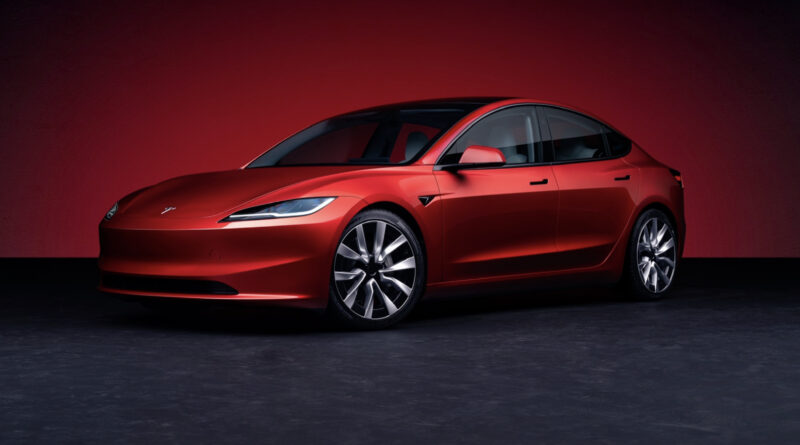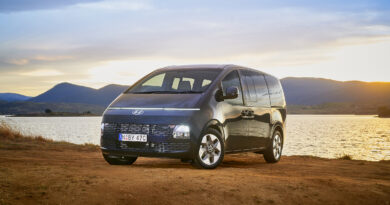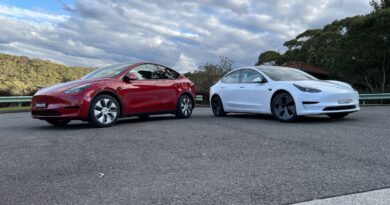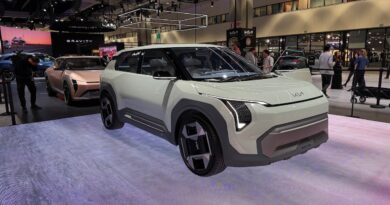Are Teslas and BYDs expensive in Australia? Not if you do the math | Opinion
Other than the kind of people you don’t want to get stuck next to at dinner, no one really likes doing math. I know I don’t, but when it comes to the second biggest purchase of our lives – a new car, or even more expensively, a new EV – you’d think we’d be able to make the effort.
I must admit I was struck by the simplicity of the numbers presented at a recent panel discussion at Sydney’s SXSW festival of ideas, titled Steering the Transition to EVs. Jonathan Williams, head of marketing at Polestar, gave a powerful eye roll when he was asked, no doubt for the zillionth time, how people could be convinced to shell out so much money for electric vehicles.
READ MORE: Why the BYD Yangwang U9 electric hypercar has been locked out of Australia
READ MORE: Bargain electric ute incoming: Nissan plotting baby electric pick-up truck
READ MORE: Huge, powerful, pricey BYD Yangwang U8 SUV confirmed for Australia
“There has been a slight premium here in Australia, but people get stuck on comparing sticker prices between EVs and traditional vehicles, and it’s a trap,” Williams insisted, stridently.
“You have to look at the long-term cost analysis, and the fact is that the cost savings over five years are enormous; the savings in fuel alone can add up to thousands of dollars, and then there are the big savings on servicing, too, you’re looking at only servicing your Polestar once every two years, for example.
“It is a big investment, but there are big savings, and not enough people think about that.
“And EVs are getting cheaper, we’re seeing that now. We need to fact check, to communicate, to educate.”
Another SXSW speaker spraying forth fascinating numbers, and opinions, was the CEO of the NRMA, Rohan Lund, who is incredibly bullish about EVs, but foresees a future in which we will all own fewer cars – which will be good for the environment but less exciting for car companies – as we move to a usage model rather than an ownership one.
“EVs are making up 8.5 per cent of new car sales right now, that’s threefold growth that we’ve seen in just a yea, and we’ll see that at least double in the next 12 months, again, but we’re still a long way behind the rest of the world,” Lund explained.
“In California, Tesla outsold Toyota in the last quarter. Just think about that. And BYD is outselling Tesla, in terms of global EV sales, we’re seeing a huge shift towards Chinese vehicles.
“The growth in Australia has been good but I think it will stall. First we had the early adopters, but now we’re looking at consumers who are chasing value, and that’s a higher bar. Some 30 per cent of intenders are looking for an EV, a figure that’s almost doubled year after year, but they’re also flagging that they’re going to delay that purchase, to see what happens in terms of subsidies and infrastructure.
(Interestingly, Paul Balbo, head of automotive for Meta, the company behind Facebook, said his company’s very granular research reveals that the first tranche of EV buyers haven’t been so much environmental warriors, they’ve been people making “status purchases”, which does sound like some Tesla buyers to me.)
“And that is an issue, with chargers, because people outside of cities get left behind in terms of infrastructure. By our calculations, we probably need about 30,000 chargers to cover Australia, and there’s not even 1000 at the moment. (On the plus side, Lund is super confident that we will see EVs with a range between charges of 1000km-plus, and soon, so that will help.)
“Infrastructure is infinitely easier in countries like the Netherlands, thanks to population density. And you’re also looking at a grid that’s built near roads. No one imagined, in our vast country, years ago, that you would need a grid near roads.”
Another thing I had not thought about was a whole different kind of range anxiety, but Mr Balbo from Meta says it’s something that people talk about on the many, many EV discussion groups popping up on Facebook.
“Range anxiety is also about will my car be available when I need it, what if I get home and my car is almost flat, but then before I can recharge it, I need a car, what will I do if it’s not ready?” Balmo said.
“A lot of the range anxiety is now about how and when will I charge my car, and what will I do if I can’t use it – thats’a real barrier to entry that I’m seeing right now.
“And this is the kind of discussion we’re seeing, we’ve seen a huge increase in owner groups, people discussing, how will this work for me, I have a drive way now, but what if I move house? People really are relying on their peers for this kind of thing.”
Another area that Meta is monitoring is consumer behaviour as it relates to cars, and that move from ownership to a sharing model. Young people, in particular, are less interested than ever in buying a new car, apparently.
“It’s interesting, pre-Covid, our research was showing that car and ride services were effecting people’s thinking around ownership, with younger audiences, in inner city areas, owning a car didn’t suit their lifestyle, thanks to the evolution of mobile services,” Balmo says.
“Then Covid happens and we’re back to ownership, because people want to be safe, but now, we’re back to a situation where car-sharing usage has eclipsed the figures before Covid, and people are thinking, again, do I really need a car?
“I’ve recently moved to Sydney from Melbourne, for example, and I’m not going to buy a car. Now 15 years ago, that wouldn’t have been an option but now if I want to leave town, I’ll just use a car share, or rent one. It’s easy.
“What we’re seeing is that two-car households are becoming one-car households, and only partly due to the cost of living crisis.”
Lund agrees and predicts that we’re seeing that switch from car ownership to usage; indeed he doesn’t think his children will own cars by the time they grow up, “but they will want access to a car”.
“In the future I don’t think we’ll see people owning two cars, remember the cars sit idle 94 per cent of the time, it’s the laziest investment any of us ever make,” Lund says.
“The way we look at cars and car ownership is going to change and we’ll see things like subscription services, where you don’t own one car, you pay a car company an annual fee and have access to a whole fleet of them.”





No wonder you are former editor of TopGear and Wheels, can’t even use quotation marks correctly.
So true David. It’s why they sacked me. I’m sure you’d do a better job.